Dear WesleyNexus Colleagues,
This month, we returned to the yearly celebration of the signing of the Declaration of Independence which proclaims that “all men are created equal, that they are endowed by their Creator with certain unalienable Rights, that among these are Life, Liberty and the pursuit of Happiness”. While it remains an ideal for which we strive, as a nation we fall short, as much now as in times past. Our current moment seems to be filled with a crisis of hate and discord. Compounding this crisis, the continual challenge of climate change presents our nation and the world with threats never before encountered by our species. In order to address climate change, we need to come together as one world body while the growing clash of party and tribe make agreement seem impossible.
The Christian message, however, is one of hope and possibility. In a recent sermon (see below), Reverend Sherwin Benjamin emphasized that the ideals expressed in the Declaration of Independence are consistent with the Gospel message of a hoped for Kingdom of God. But we have work to do. “God’s work continues through us. That is the purpose for which God redeemed us, because of God’s unfailing love and to be God’s instruments of grace and transformation in the world”. But we need to get moving; there is no time to waste. Where there is hatred, we must sew love and if the message is not received, move on to more fertile ground. But also understand that “dusting off” our shoes does not mean that we “dismiss, disregard, or discount” those who will not listen. The work of reconciliation and transformation needed to overcome the current environment will continue with many opportunities to return. But the time is short. The dual crises of political discord and climate change will not wait.
“So, as we celebrate this 4th of July, a day when we mysteriously set aside the things that distance us from each other to celebrate freedom and liberty, remember that God has sent us into the world to continue the work of liberating all of humanity. Remember that God has sent us to be bridge builders”.
This month, we focus on the dynamics of hate and empathy, the problem of climate change and democracy. We hope you will find something to challenge you and give you insight.
Thanks go out to our generous contributors. We encourage you to share comments, articles and insights that will help us all weather these difficult times.
Rick, Jennifer, Maynard, and the rest of the WesleyNexus team
******************************************************************
Sermon: “Sent, Dust, Not Dis” by Reverand Sherwyn Benjamin
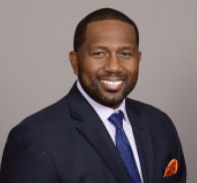
Sherwyn Benjamin is Assistant Pastor of Damascus United Methodist Church in Damascus, Maryland. He gave the sermon linked below on July 4, 2021.
So, as we celebrate this 4th of July, a day when we mysteriously set aside the things that distance us from each other to celebrate freedom and liberty, remember that God has sent us into the world to continue the work of liberating all of humanity. Remember that God has sent us to be bridge builders.
https://wesnex.org/wp-content/uploads/2021/07/Sent-Dust-Not-Dis.pdf
******************************************************************
21.2 “Explaining Collective Behavior,”
from Sociology: Understanding and Changing the Social World, University of Minnesota (2010)

As we see every day in the media, people in groups tend to amplify emotions and actions of those who gather together. The University of Minnesota has provided a sociology textbook online that contains an important chapter on collective human behavior. It is quite interesting and helpful.
Sociology: Understanding and Changing the Social World is adapted from a work produced and distributed under a Creative Commons license (CC BY-NC-SA) in 2010 by a publisher who has requested that they and the original author not receive attribution. This adapted edition is produced by the University of Minnesota Libraries Publishing through the eLearning Support Initiative.
https://open.lib.umn.edu/sociology/chapter/21-2-explaining-collective-behavior/
***************************************************************
The Destructive Power of Hate by Dr. John H. Sklare

Poison isn’t always something you eat or drink – it can be an emotion. And hate is one of them, eating you up inside and causing destruction. Do you have hate in your life? Read on for ways to control it before it damages you or your loved ones…
https://www.everydayhealth.com/emotional-health/destructive-power-hate/
***************************************************************
The science of empathy, forgiveness, and prosocial behavior
An interview with psychologist Michael McCullough. By Bryan Goodman.

Michael McCullough, PhD, an experimental psychologist at the University of California at San Diego, is a prolific researcher focusing on prosocial behavior. He recently answered questions about what we are learning from his lab research and other studies in the area.
https://www.apa.org/research/action/empathy-forgiveness-prosocial-behavior
***************************************************************
A Conversation With Jamil Zaki [10.20.15]
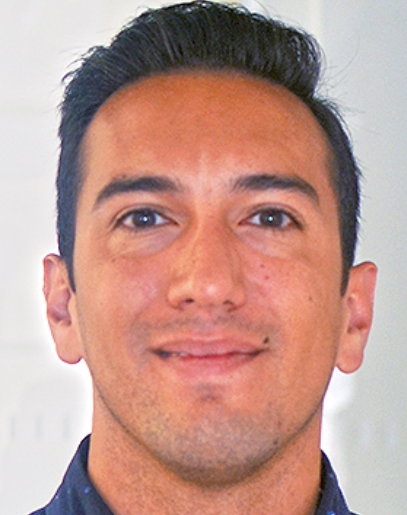
This Edge.org conversation was included in the newsletter a number of years ago but is worth revisiting again. In this time of discord, empathy for others certainly should be promoted. However, empathy itself can be a two-edge sword.
If you believe that you can harness empathy and make choices about when to experience it versus when not to, it adds a layer of responsibility to how you engage with other people. If you feel like you’re powerless to control your empathy, you might be satisfied with whatever biases and limits you have on it. You might be okay with not caring about someone just because they’re different from you. I want people to not feel safe empathizing in the way that they always have. I want them to understand that they’re doing something deliberate when they connect with someone, and I want them to own that responsibility. (Jimil Zaki)
JAMIL ZAKI is an assistant professor of psychology at Stanford University and the director of the Stanford Social Neuroscience Lab
https://www.edge.org/conversation/jamil_zaki-choosing-empathy
***************************************************************
The Science of Empathy by Helen Reiss, MD
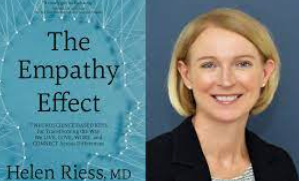
Empathy plays a critical interpersonal and societal role, enabling sharing of experiences, needs, and desires between individuals and providing an emotional bridge that promotes pro-social behavior. This capacity requires an exquisite interplay of neural networks and enables us to perceive the emotions of others, resonate with them emotionally and cognitively, to take in the perspective of others, and to distinguish between our own and others’ emotions. Studies show empathy declines during medical training. Without targeted interventions, uncompassionate care and treatment devoid of empathy, results in patients who are dissatisfied. They are then much less likely to follow through with treatment recommendations, resulting in poorer health outcomes and damaged trust in health providers. Cognitive empathy must play a role when a lack of emotional empathy exists because of racial, ethnic, religious, or physical differences. Healthcare settings are no exception to conscious and unconscious biases, and there is no place for discrimination or unequal care afforded to patients who differ from the majority culture or the majority culture of healthcare providers. Much work lies ahead to make healthcare equitable for givers and receivers of healthcare from all cultures. Self- and other-empathy leads to replenishment and renewal of a vital human capacity. If we are to move in the direction of a more empathic society and a more compassionate world, it is clear that working to enhance our native capacities to empathize is critical to strengthening individual, community, national, and international bonds.
https://www.ncbi.nlm.nih.gov/pmc/articles/PMC5513638/
***************************************************************
IRAS Monthly Webinar Series
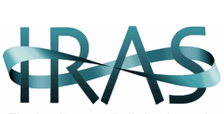
A Christian Naturalist Theology: Living Faithfully in This World Only
With Dr. Karl Peters
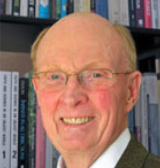
July 28, 2021 – 4:00 PM in Central Time (US and Canada), 5:00 pm Eastern
This webinar will afford everyone the opportunity to hear Dr. Karl E. Peters, a past president of IRAS and well-known theologian, reflect on some of the world’s great questions. This book is being submitted for publication, and in many ways is the culmination of Karl’s deep thought over a long life in creative theology. Karl traces major changes in Western worldviews over twenty centuries, ending with the cosmology that frames the modern age and the dialog between science and religion. This framework is crucial for intellectual honesty in the current epoch. Karl addresses how we might understand “God,” the evolution of humans, and human evil—such as systemic sexism, racial injustice, and moral challenges in an era of climate change. Once this framework has been established, Karl then returns to theologizing about Jesus and following Jesus in the practice of Christianity. This is where Karl shines the brightest. Reflecting on what Jesus did and who Jesus was from a naturalistic perspective, Karl uses the New Testament testimony to show how “practicing Christianity leads to a fulfilled life without intellectual commitment to the mythologies and anachronisms that come to us from ages past. As we go forth into the world, the lessons we learn from Karl become our foundation for living: honesty with self, commitment to family, loving the neighbor, and building community. This is a compelling message for all of us facing the challenges ahead in the 21st century.
https://us02web.zoom.us/webinar/register/WN_smp5eDFwR4ezZiYc93xlhw
***************************************************************
COSMOS AS HOME: EVOLUTION AS CONTEXT
By Mary Evelyn Tucker
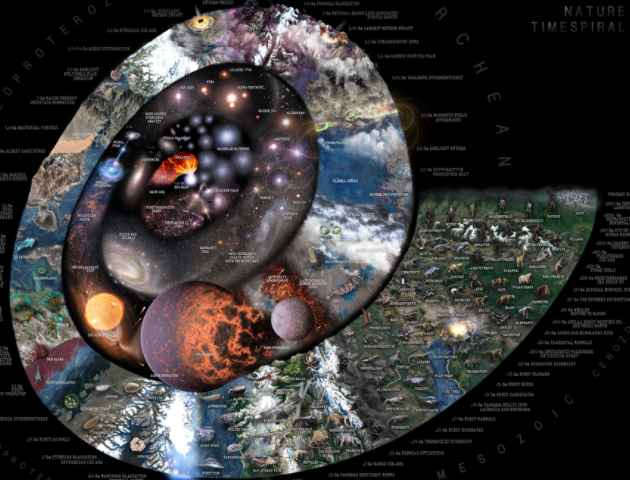
The news is still new–the concept of evolution that is. We humans are just processing what evolution is and what it means to us. The theory of biological and human evolution as first presented by Charles Darwin in his book On the Origin of Species is only 160 years old. Even for Darwin, the implications of human evolution were astounding and unsettling. It is one of the most remarkable discoveries of modern science.
https://www.humansandnature.org/Cosmos-as-Home-Evolution-as-Context
***************************************************************
Climate change has gotten deadly. It will get worse. By Sarah Kaplan
https://www.washingtonpost.com/climate-environment/2021/07/03/climate-change-heat-dome-death/
***************************************************************
Theologian Catherine Keller sees a path from apocalypse to transformation by Marian Ronan

You don’t need me to tell you that we are currently facing an overwhelming array of crises around the world. Political strongmen — dictators — coming to power. Millions of refugees fleeing war and climate catastrophe. A vast array of species facing extinction. And seemingly endless religious conflicts — not to mention the plummeting of membership in institutional religion, at least in the West.
These crises seem so dire that many use the word “apocalypse” to characterize them.
Yet as constructive theologian Catherine Keller explains in her galvanizing new book, Political Theology of the Earth, apocalypse doesn’t mean what many think it means: the coming of the end times. This is not to say that Keller dismisses the crises that face us. She agrees that we are right to be apprehensive.
***************************************************************
Expanding the Spirit of Democracy by MARY EVELYN TUCKER
How do we look clearly at our history and, through reexamining it, seek ways forward? Can we own our past and create a more equitable society, just economics, and inclusive politics? May we ask forgiveness and restore compassion? Can we recognize that democracy rests on peace, not violence and bloated military budgets? In short, how can we rediscover and expand the spiritual roots of democracy?
https://orionmagazine.org/2020/08/democracy/
***************************************************************
The Common Values That Increase Trust Between Science and Faith
Elaine Howard Ecklund examines curiosity, shalom and other virtues that scientists and Christians share.
INTERVIEW BY CHRIS REESE
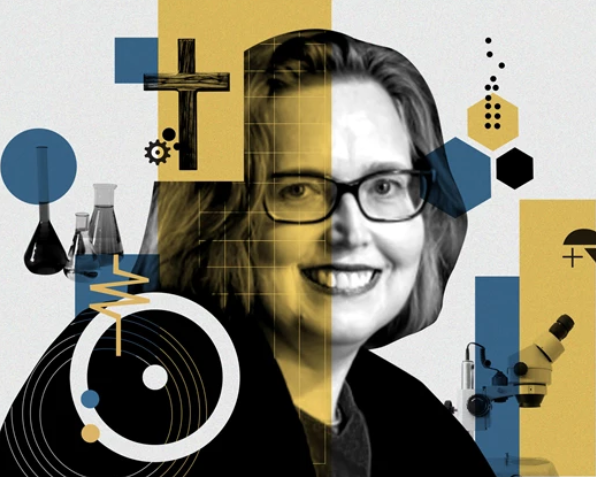
***************************************************************
BioLogos
BioLogos was founded by one of the top biologists in the world, Francis Collins. He led the Human Genome Project and now directs the National Institutes of Health in Bethesda, Maryland. In 2006, he wrote the best-selling book The Language of God in which he tells his journey from atheism to Christian belief, showing that science is not in conflict with the Bible, but actually enhances faith. The outpouring of response to the book showed the need for virtual and actual meeting places to ask questions, discuss issues, and learn from the top Christian minds in the sciences and theology.
The BioLogos stated Mission: BioLogos explores God’s Word and God’s World to inspire authentic faith for today. Our vision is faith and science working hand in hand.
The BioLogos Core Commitments: We embrace the historical Christian faith, upholding the authority and inspiration of the Bible.
We affirm evolutionary creation, recognizing God as Creator of all life over billions of years.
We seek truth, ever learning as we study the natural world and the Bible.
We strive for humility and gracious dialogue with those who hold other views.
We aim for excellence in all areas, from science to education to business practices.
——–
WesleyNexus encourages all our participants and colleagues to connect with BioLogos.
Click to: https://biologos.org. Review the material on the home page and scroll all the way down to enter your email address in order to get announcements of the monthly webinars and other events, some of which soon will be scheduled in-person.
